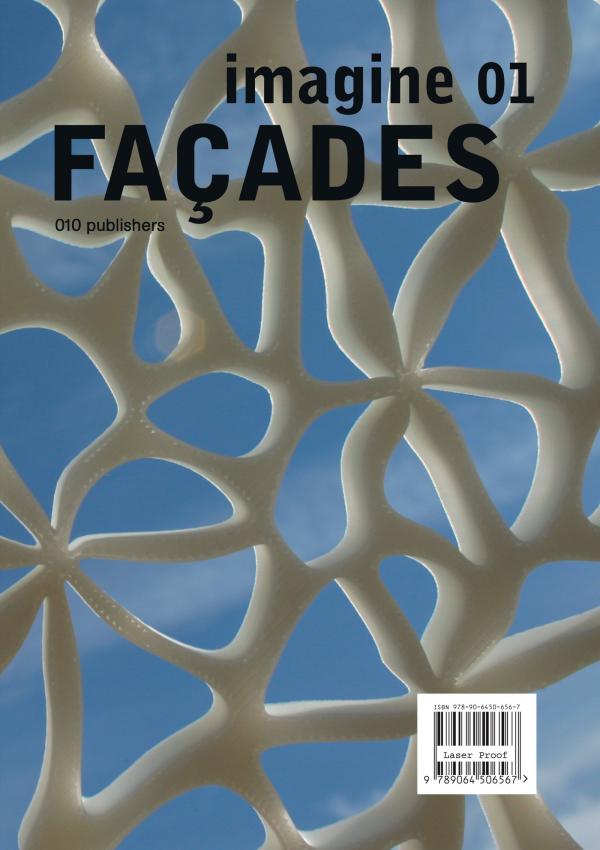
Synopsis
Façade technology of the 20th century is related to the dissolution of the massive wall into a separation of structure and façade. Looking at the development of façade technology, after 60 years of curtain wall systems, 30 years of element-façade systems and ten years of experience with the integration of environmental services in double façades, it can be concluded that the peak of optimisation has been reached. No further technical developments can be expected by continuing to apply extra layers for each additional technical function. Understanding façades - or better envelopes - as part of an integral building, we have to see that creating the future envelope has to be done on a ’network’ basis: employing systems - but also methods of thinking - which provide the possibility to develop different aspects simultaneously and combine them as required. The envelope has to be seen as a functional part of the entire building, serving a part of the demand by providing the necessary technologies and qualities. In this regard, we have to withdraw from material and structure-orientated thinking and construction – we have to develop the envelope as a hybrid system: materials, technologies and production processes have to be integrated into the summation and combined into an all-encompassing result. Façades comprise various themes covering strategic, material and technological developments. Aspects such as function integration, networking of elements, new structures and materials as well as the addition of functions to existing structures will be investigated and explained in 85 or so concrete ideas.
References
Ashby Shercliff et al.: Materials – engineering, science, processing and design, Butterworth Heinemann, Oxford 2007
Behnisch Architects, Transsolar ClimateEngineering: Ecology.Design.Synergy, Berlin 2006
Andrea Compagno: Intelligente Glasfassaden – Material, Anwendung, Gestaltung, Birkhäuser Verlag, Basle, 5. Auflage 2002
Klaus Daniels: Gebäudetechnik – Ein Leitfaden für Architekten und Ingenieure, Oldenbourg Verlag, Munich 1996
Klaus Daniels, Dirk U. Hindrichs: Plusminus 20/40 Latitude - Sustainable Building Design in Tropical and Subtropical Regions, Edition Axel Menges, Stuttgart 2002
Mike Davies: A Wall for All Seasons, in: RIBA Journal, 1981, Bd. 88, No. 2. – Deutsch: „Eine Wand für alle Jahreszeiten“, in: Arch+, No. 104, 1990
Gerhard Hausladen, Michael de Saldanha, Petra Liedl, Christina Sager: Clima Design – Lösungen für Gebäude, die mit weniger Technik mehr können, Callwey Verlag, Munich 2005
Gerhard Hausladen, Michael de Saldanha, Petra Liedl: Clima Skin – Konzepte für Gebäudehüllen, die mit weniger Energie mehr leisten, Callwey Verlag, Munich 2006
Thomas Herzog, Roland Krippner, Werner Lang: Fassaden Atlas, Birkhäuser Verlag, Basle and Edition Detail, Munich 2004
Ulrich Knaack: Konstruktiver Glasbau, Rudolf Müller Verlag, Cologne 1998
Ulrich Knaack, Wilfried Führer, Jan Wurm: Konstruktiver Glasbau 2, Rudolf Müller Verlag, Cologne 2000
Ulrich Knaack, Tillmann Klein, Marcel Bilow, Thomas Auer: Principles of Construction – Façades, Birkhäuser Verlag, Berlin 2007
Christian Schittich (Hrsg.): Gebäudehüllen – Konzepte, Schichten, Material, Birkhäuser Verlag, Basle and Edition Detail, Munich 2001
Alex Steffen, et al.: World Changing – a user’s guide for the 21st century, Harry N. Abrams, Inc., New York 2006
Eberhard Oesterle, Rolf-Dieter Lieb, Martin Lutz: Doppelschalige Fassaden, Callwey Verlag, Munich 1999
Frei Otto und Andere: Natürliche Konstruktionen, Stuttgart 1982
Uta Pottgiesser: Fassadenschichtungen Glas, Bauwerk Verlag, Berlin, 2004
Axel Ritter: Smart Materials in Architektur, Innenarchitektur und Design, Birkhäuser Verlag, Basle 2006
Andrew Watts: Moderne Baukonstruktionen Fassaden, Springer, Vienna 2004
Els Zijlstra: Material Skills – Evolution of Materials, Materia, Rotterdam 2005





